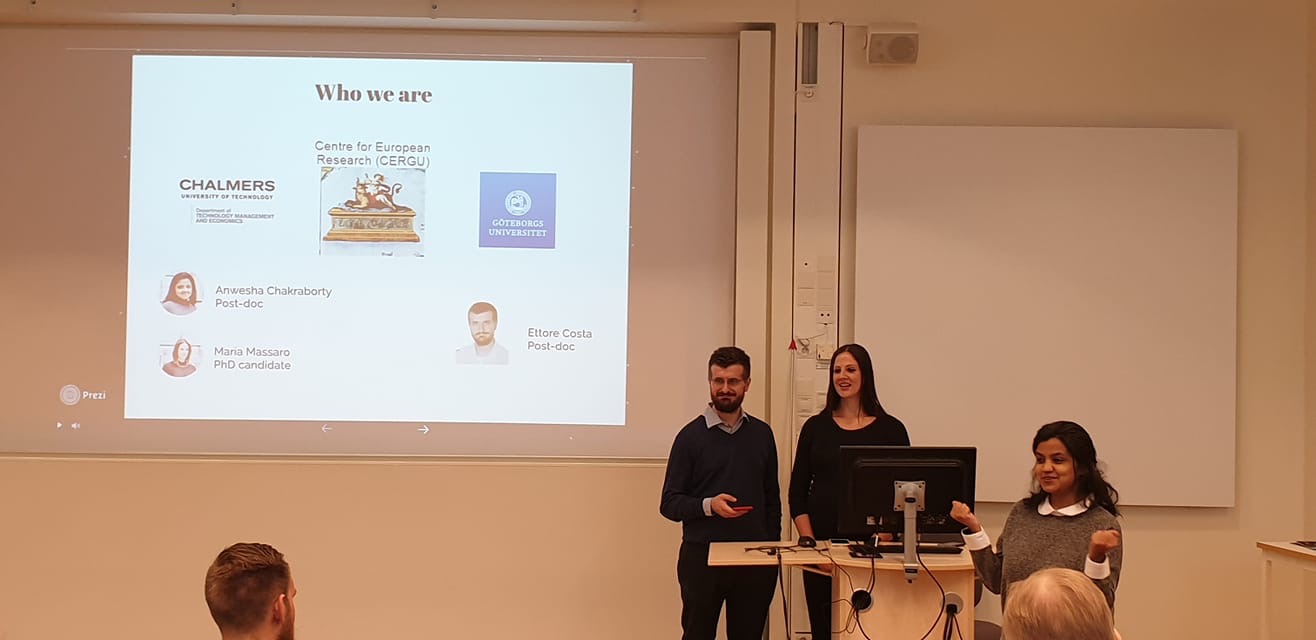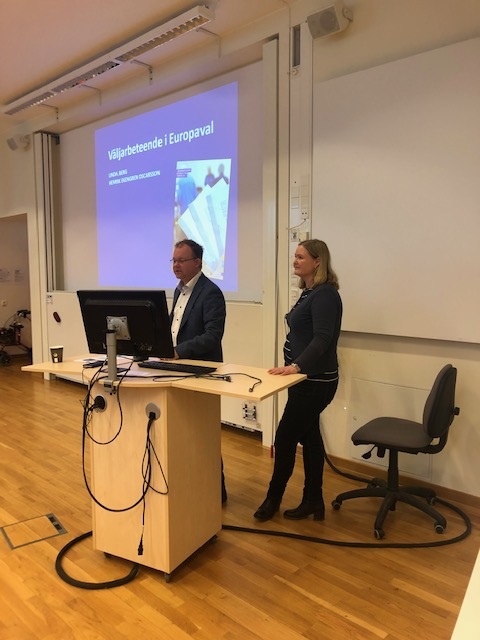- Hem
- Aktuellt
- Hitta nyheter
- CERGU hade två inslag på Vetenskapsfestivalen 2019
CERGU hade två inslag på Vetenskapsfestivalen 2019
On Thursday 4 at 17:00, Ettore Costa (Centre for European Research, University of Gothenburg) and Anwesha Chakraborty and Maria Massaro (Chalmers, Department of Technology, Management and Economics) held an event Space may be the final frontier, but is it made in Hollywood's basement? in the framework of the International Science Festival of Gothenburg. The subject was the relationship of the public with space technology, in particular how hostility and indifference were mediated by popular culture. The lecture challenged the recurrent argument that money spent of space were wasted because there were more urgent problems on Earth. Participants took a quiz about space technology, the history of space exploration and the public expenditure for space, testing their previous knowledge and facing preconceived notions and urban legends. During the quiz, they listened to satirical songs from the 1960s lampooning the Space Race. The first part highlighted the importance of artificial satellite, how they worked, how they benefited our life on earth and how they are regulated. The lecture aimed to persuade the audience to be more engaged not to leave the issue to business interests. The second part provided historical perspective: during the Space Race in the 1960s, the immense expenditure of public money from the Soviets and the Americans provoked mockery and opposition. In particular, civil rights activists and the New Left argued that money should be spent to improve the life of poor African Americans in the urban slums or the starving people in the Third World. The same arguments would be used against the Indian Mars Orbiter Mission, which was covered in part three. This success at first attempt, even more striking because of the extremely low cost, showed that the Indian space programme belonged to the elite club, but it also provoked negative reactions, especially among Western observers, who argued that Indian social problems deserved that money. Defenders of the mission said that critics were jealous about the achievements of a formerly subjugated colony and ignored that space research allowed to develop scientific and technological infrastructures making Asian nations competitive. Despite doubts, support for space exploration is stronger nowadays than in the past, because ordinary people can see the benefits of technology in their daily life. In conclusion any democratic debate about science must balance the right of taxpayers to see their money spent responsibly with the need of long-term investments of scientific research. This is central for a knowledge society that is more efficient and fairer.

Europaparlamentsval – hur tänker vi?
Söndagen 7 april anordnade CERGU och Valforskningsprogrammet detta inslag tillsammans. Våra praktikanter Kajsa Evertsson och Maja Sörebro inledde med att berätta om, och visa exempel på, våra faktablad om EU-val. Kajsa och Maja arbetar med faktabladen under sin praktik. Därefter var det dags för CERGU:s föreståndare Linda Berg och Henrik E. Oscarsson, som leder Valforskningsprogrammet vid Göteborgs universitet, att berätta vilka lärdomar vi kan dra från analyser av väljarbeteende i samband med det så kallade supervalåret 2014. Mycket av det som presenterades kan läsas mer om i rapporten som finns här.
